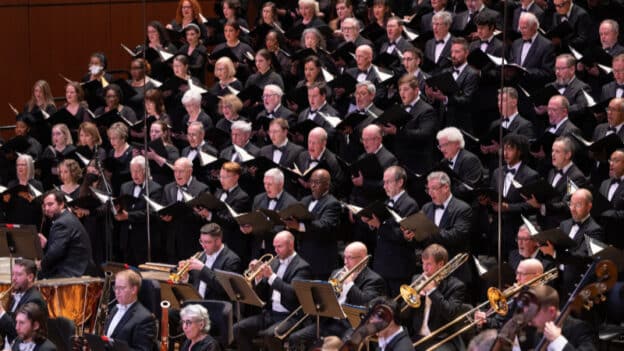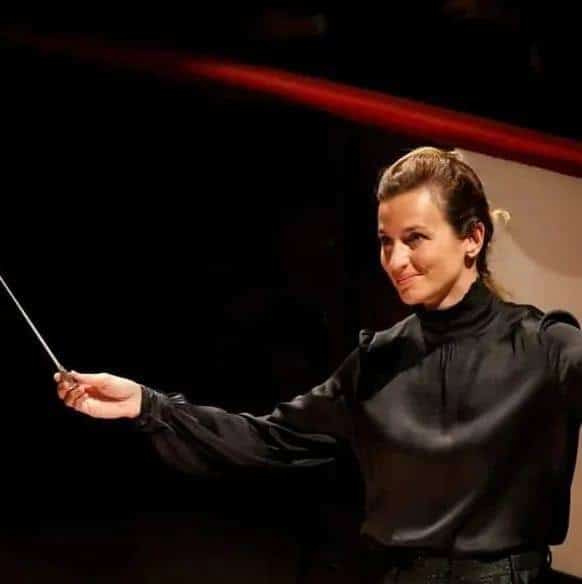There’s no such thing as a free ticket
mainDeborah Jones, former arts and Review editor of the Australian newspaper, weighs in on the widening row between Opera Australia and much of the media, after artistic director Lyndon Lyndon Terracini refused review facilities to a pair of prominent critics.
Deborah has much to say about the personalities involved, but her most important insight touches on the consensual, sometimes collusive relationship between performing arts organisations and the newspapers that review them.
She writes:
Not only is it customary for reviewers here to accept tickets – so do senior managers, editors and writers, not necessarily all of them directly involved in the organisation’s cultural coverage. In the good old days arts organisations’ largesse was sometimes extended to administrative staff. So what? It’s always been this way.
In other words, there is an entrenched and rather touching belief on our part that disinterested media coverage plus freebies doesn’t equal oxymoron. Although it is a far from satisfactory state of affairs the system continues because it is mutually beneficial. Mostly. We media types scarcely think about the fact that, almost always, reviewers are given not one but two tickets so they can bring a friend along to work, and that drinks are almost always laid on at the premiere. What could be regarded as career-ending inducements in other fields of endeavour are part of the landscape. They don’t stop us from writing a swingeing review if we see fit. We trust ourselves, of course we do. It is insulting to suggest anything else. (Which does raise the matter of quis custodiet ipsos custodes, but let’s move on …)
Full post here.






There SHOULD be no such thing as a free ticket!
If a reviewer accepts free tickets to an event, then in the interest of full disclosure the reviewer should indicate that free tickets were given and used.
What is wrong with a newspaper that cannot, as a matter of ethical journalism, pay for a ticket for a reviewer? Doesn’t the newspaper expect its readers to pay to read a review?
As it is widely known that (most) reviewers receive press tickets, I do not see the need to mention the fact in every item.
Do you suppose sport reporters pay to get into games or sporting events? And yet they seem to be able to cover what went on in a particular arena (I use the word generically) on a given day. Aside from sycophantic coverage of Tiger Woods, most sport coverage I have read seems to be reasonably reflective of the event, even if one has room for disagreement over certain points.
The late Kenneth Tynan once said that a reviewer’s job was to report what went on in a particular theatre on a particular night. With the understanding that — as I assume is also true in sport coverage — context is considered, and a reasonable level of expertise is brought to the subject, I agree with this. A reviewer has three EQUAL responsibilities: to his/her employer, to the artists and to the audience of whatever medium is in play: reader, listener, viewer. That means preparing the review in the format appropriate to the outlet, knowing enough to assess the artistic endeavour in full context, and an honest communication of his/her views to those who seek to read, hear or watch them.
As far as I am concerned, there are no “free” tickets. I work for my tickets.
Deborah Jones makes several interesting observations in her thoughtful article. One is the different tone most adopt when writing for social media, blog sites etc. compared with what has traditionally been acceptable in the print media.
“It’s important to use language very precisely in these situations . . . Simmonds, and to a lesser extent Cunningham, used the robust and colourful language that is the lingua franca of the online environment. It’s more direct and personal – more likely to sting? – than we are used to historically. The language of the mainstream media is still to a large degree more formal, mediated by a greater number (albeit diminishing) number of editors, sub-editors and lawyers.”
Is it time to remind writers that there is a difference – and not just for historical reasons? The far more general readership of the mainstream media like the SMH is not the place for the airing of personal invective.
Another of Ms. Jones’ points concerns her own views on ethics: “I don’t accept commissions about work I’m going to review, but I’m very aware of the conflict nevertheless and of the fine line being drawn.” Perhaps Ms. Cunningham might take note – the more so being in the position of having taken commissions from OA for as long as ten years!
Harriet didn’t write the article in question for The Sydney Morning Herald. She wrote it for the arts section of the website Crikey, which makes quite a big deal of its practice of printing very forthright views in very direct language.
And note I didn’t write a single review of Opera Australia during the time they were one of my corporate clients. I also disclosed my interest whenever writing about the company during this time.
Also, as CDH says, I think it’s fair to say critics work for their tickets! They certainly don’t do it for the money.
Damn right!